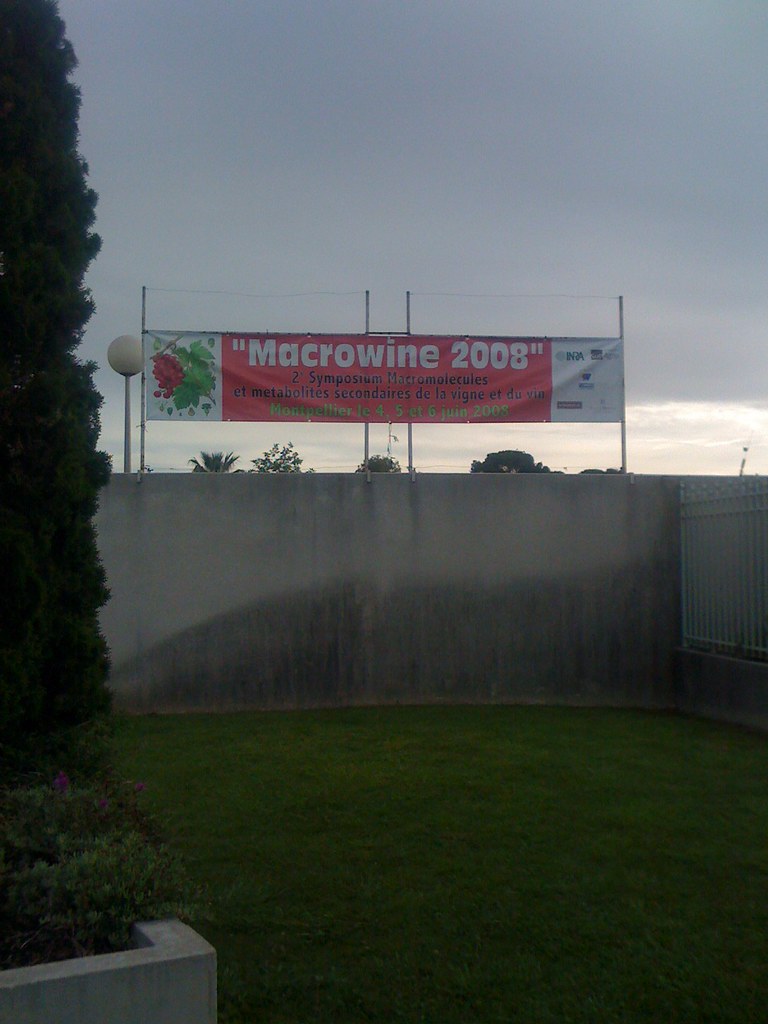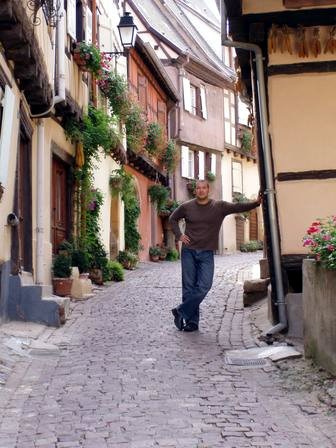I realize that I have neglected to mention much about the very reason that I ended up in Montpellier. I was in town to attend two wine science conferences – the first, ‘O2 Wine,’ was the first annual gathering of an industry / academic partnership by the same name which is dedicated to defining and in some cases funding needed research into the interaction of oxygen in wine at all stages from crush through bottle aging. It is made up of members from primarily industrial equipment and materials suppliers, as well as laboratories and scientists affiliated with the top wine universities and research institutions in Germany, Australia, France, South Africa, Spain and the United States. The second conference is called ‘MacroWine’ and it is the second annual meeting of this group, which has a similar mission, but is more related to uncovering the secrets of macro-molecules in wines, such as tannins, polyphenols, colloids, proteins, and protein / phenol complexes and the way that they influence wine quality, sensory perception, and stability.
(I was invited to attend by a synthetic closure company whom I have been in contact with following (or rather during, as it is still ongoing,) a production-level trial in which I have been following the development and aging of a wine that was finished with a variety of closure types, including screwcaps, synthetic corks, natural corks, and an engineered cork closure. All of these products allow varying amounts of oxygen into the bottled wine during aging, and thus provide different rates of oxidation, different life spans for the wine, and different sensory results in what was at one time an identical wine.)This was a pretty heavy week of information – much of what was presented was very academic and assumed a daily familiarity with the subtleties of organic chemistry, protein and enzyme synthesis and activity. It was very cool to be seated in a room with some of the best names in wine science – I seriously know most of these guys from reading the papers that they have published in AJEV and other research publications that are becoming foundational to these fields of research. Several of the presentations dealt with laying the basics – what are the best methods to categorize and measure such complex and diverse groups of chemical species – the scientific equivalent of building a language that can be understood and used by all who are pursuing research in these areas. Secondly, these kinds of meetings of the best like-minded scientists in the world can only lead to more rapid advances and better understanding for the industry as their discoveries are shared and cross-pollinate and illuminate one another. The industry affiliates whom are largely funding this group are also poised to be the first to benefit as they incorporate and have access to the minds and information that are involved.
I am sure that this will lead to better products, better understanding, more rational winemaking, and ultimately better wine made in a more efficient way in the future. Not quite at the level of curing cancer, (although some of the phenols involved are being shown to do just that, so who knows!) but I believe that better wine is a cause we can all get behind!
The conferences were hosted at the INRA (Institute National for Research Agricultural) which is certainly well-known as the birthplace of many wine-related improvements. Many of the specific yeast strains that are used worldwide, many of the certified rootstocks and grapevine scions were developed here, and it was very cool to walk along the edge of the experimental vineyard.
Montpellier is actually a strong center of Agricultural research of many kinds – SupAgro (the specific part of the INRA that we met at,) is the nickname for the top agricultural school (Superior Agronomy, or something like that,) in France, and there is another related research facility called Agropolis, basically an academic research campus that is dedicated to developing new ways to farm crops worldwide, with an emphasis on hot-climate agriculture for the developing world, specifically food and cash crops for Africa, Asia, and elsewhere. In addition, this campus hosts one of the most important research projects into the questions raised by agriculture and global climate change. Very interesting place, and very important in the world!



No comments:
Post a Comment